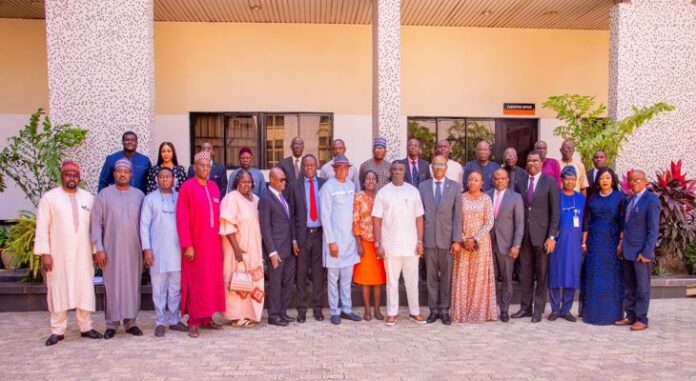
He noted that the event marked another milestone in the commitment of the President Muhammadu Buhari administration to solving the infrastructure needs of the country, considering the critical role to be played by TWG in the implementation of the reviewed National Infrastructure Master Plan (NIIMP).
Agba recalled that the Federal Government, while addressing the problem of huge infrastructure deficits in Nigeria, developed the NIIMP (2014-2043) in 2014 as a government blueprint for building world- class infrastructure required to grow the economy, enhance the quality of life of its citizens, create jobs, as well as, improve the nation’s global competitiveness.
The Minister also disclosed that the public investments in both core and non-core infrastructure had substantially increased.
He particularly noted that public investments in road, railway, aviation, ICT, housing and regional development infrastructure had all been privatized by the current administration.
He, however said, that the need for government to do more had necessitated the inauguration of the National Council on Infrastructure, along with its Technical Working Group, to essentially bring together stakeholders from the Ministries, Departments and Agencies and the Private Sector Organizations.
This, he stressed, was to fast track the delivery of priority projects and programmes in line with key national policies of the Government.
While enumerating the terms of reference for the Council to include: providing policy direction on infrastructure and driving the sustenance of the expected synergy between the public and private sectors, among others, the minister emphasized that the Technical Working Group (TWG) had been created as a working arm to guide and advise the council on all infrastructure-related matters.
Imaobong Udoh
for: D(Information)
BNP




